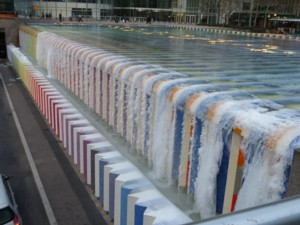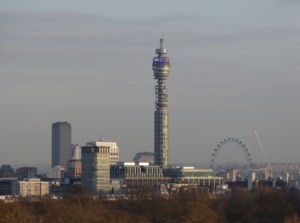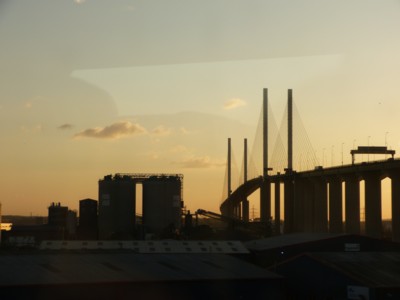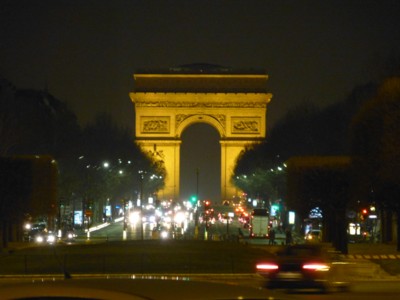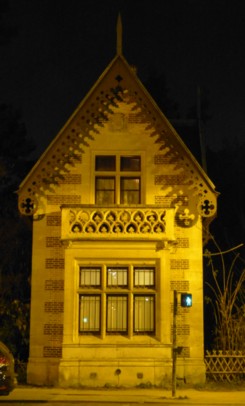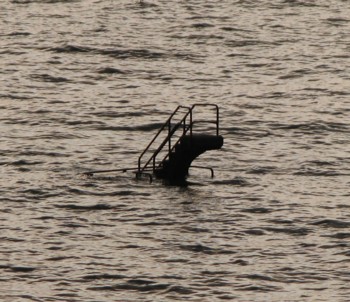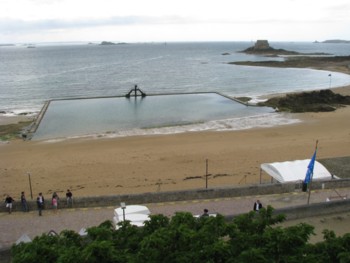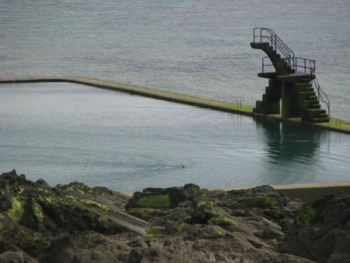We are developing the social individualist meta-context for the future. From the very serious to the extremely frivolous... lets see what is on the mind of the Samizdata people.
Samizdata, derived from Samizdat /n. - a system of clandestine publication of banned literature in the USSR [Russ.,= self-publishing house]
|
A couple of months ago now, I went ahead and bought that new camera that I had for quite a while been thinking about buying. The circumstance that provoked me into making a decision earlier than I otherwise would have done was a trip, early in February, to Paris. Yes, it was cold:
That’s a water feature, somewhat frozen when I photoed it, in La Défense, the big clump of modern architecture in the west of Paris.
The thing that clinched it for it, in favour of the Panasonic Lumix FZ150, was how reviewer after reviewer used phrases like “an all round winner” and “all round best”, as in best for the sort of camera that I wanted, when writing about it. Such talk suggested to me: excellence in what I knew I wanted (zoom, picture quality, good video recording) together with excellence in other areas that I would only learn about after I had started using the thing. So it is proving.
The other camera I was considering buying was the Canon SX40 HS. I can’t compare my new Lumix with that, and will presumably never know for sure if I made the exact right choice. But I can compare my new Lumix with all the previous cameras I have ever owned, and in particular with my most recent previous camera, a Canon S5 IS. And I can now tell you that I am a very happy snapper. Could I have chosen even better? Perhaps. Have I meanwhile chosen well? It certainly feels that way now.
The x24 zoom supplied by the new Lumix is wonderful, just as I expected it would be. The Canon SX40 HS has x35 zoom, but I reckoned that x24 would suffice for my purposes and so it is proving:
That’s a snap taken last week from Primrose Hill. On a typical London day, the limits of how far your camera can see with clarity are set not by its lens but by the clarity of the air, which is mostly set at: not very. So I am very happy with my new zoom superpower.
Other improvements on my old Canon were not quite so expected. → Continue reading: My new Panasonic Lumix FZ150
Of course, a number of governments, including the late, unlamented one of Tony Blair, were prepared to hold their noses and do business with the now very dead former dictator of Libya, but this story about an alleged £42 million campaign contribution to Nicolas Sarkzoy in 2007, if true, would surely be the end of the diminutive president of France.
Excerpt:
“The “terms” for handing over the money were agreed in a meeting between the two men in Libya two years before Mr Sarkozy’s election, documents published by a French investigative website suggest.A memo obtained by the Mediapart site and handed to a judge alleges that the meeting on Oct 6, 2005 resulted in “campaign financing” of “NS [Nicolas Sarkozy]” being “totally paid”. At the time Mr Sarkozy was France’s interior minister with well-documented ambitions to succeed Jacques Chirac. Political financing laws ban candidates from receiving cash payments above €7,500 (£6,300) but Mediapart claims that €50”‰million mentioned in the memo were laundered through bank accounts in Panama and Switzerland.”
Of course, given the range of poisonous collectivists running for the job of French president, it is very much the case of “none of the above” if I were a citizen of that country and thinking about voting in the upcoming French elections this year.
I am in Paris, staying with occasional Samizdatista Antoine Clarke.
Photoed out of the Eurostar on the way, the M25 bridge over the Thames:
When I got there and after I’d settled in, we went out for supper and then went walking for a while.
Arc de Triomphe:
Old internal customs duties office, which ceased functioning in 1943:
Antoine on Twitter this morning:
Ice cold in Paris … And those nice straight boulevards make wonderful wind tunnels.
Michael Jennings on Twitter:
Brian is having a good time then?
Antoine:
Likes this.
Bastard.
We were going to go out walking today, but instead will be indoors, either at Antoine’s home or in some museum.
I suppose it’ll add some spice to history exams though. Get the wrong answer and you not only fail: you get carted off to jail as well.
– The concluding sentences of a piece by Mick Hartley criticising a new French law which, once President Sarkozy signs it, will make it a criminal offence to deny that genocide was committed by Ottoman Turks against Armenians.
A Napoleonland theme park is being planned. I find it hard not to see this as being rather like “Hitlerland” but with more elegant looking clothing.
“All this [illicit trade] suggests that, while customs barriers stifled trade, they did not necessarily increase isolation. The `fortress’ of France was remarkably porous. Any commemoration of European unity should remember the smugglers and pedlars who helped to keep the borders open.”
Page 152, taken from The Discovery of France, by Graham Robb. The entire book is crammed with wonderful examples of French life down the ages, and in particular, I am struck by what were, by the standards of the time (18th and early 19th centuries) vast migrations of people within the country in a way that resembles the even longer migrations of people around the world today. Even the “Tour de France” cycle race seems to have its echoes in the heroic journeys made by pilgrims, travellers and labourers of ages past.
This is a great book if you are thinking of spending a week in that country. Robb has also written a fine biography of that giant of French literature, Victor Hugo.
As a new (slightly overweight) inhabitant of Neuilly-sur-Seine, I have got into the habit of walking the boundaries of this small suburb to the West of Paris [link in French]. The idea is to become familiar with the street names and neighbourhoods, and drop a few kilos in the process. At many of the main road junctions, rather nicely-built small brick houses can be found, looking like 19th century rural railway stationmasters cottages. They are in fact a vestige of one the French Revolution’s greatest failures, and probably the only thing the collaborationist government of Le Maréchal did right.
August 1st, 1943 is the date when Pierre Laval’s proposal to abolish internal customs tariffs in France came into effect. It was even done for a good reason: wartime hardship meant that the population of France was suffering enough trouble obtaining food at all without having to deal with a tax for crossing a city boundary.
One of the complaints that triggered the 1789 revolution was the practice of taxing the transport of goods within France. For nearly a decade, the “octroi” was eliminated, but restored by the Directorate in 1798. Several attempts were made to scrap the tax during the 19th century. At the turn of the 20th century, individual towns were allowed to scrap the tax, but many did not do so, due to the lack of an alternative source of revenue.
The Neuilly Octroi buildings have been preserved and in some cases have better (or worse) uses today. One of them is a shop selling newspapers and sandwiches. Another is the local office of a trade union syndicate, which I am guessing, is provided either free of charge or at a subsidized rate.
I like the fact that a reminder exists of a time when families would go out of town to buy such things as butter or jam, and smuggle it in baby prams to avoid the tax, less dramatic versions of Checkpoint Charlie. I have not checked, but Montmartre was outside the Paris octroi in the 19th century and as a result a lot of bars opened up offering the Parisian equivalent of “booze cruises.” This in turn became the spot where artists looking for cheap alcohol – especially absinthe – would hang out. So the octroi may well have had a profound indirect effect on the artistic careers of Salvador Dalí, Amedeo Modigliani, Claude Monet, Pablo Picasso and Vincent van Gogh.
Pierre Laval was shot for his crimes in 1945. Scrapping the octroi was not one of them.
The easy part is taking all the photos. The slightly harder part is knowing which are worth foisting on other people, not least because foisting is more complicated than taking. Anyway, I hope you enjoy these Brittany holiday snaps which I took a couple of months ago and have now picked out as worth exhibiting here.
My usual Brittany airport destination has been Brest, quite close to where the friends whom I regularly visit live, in Quimper. But, probably because of the new and very obviously architect-designed buildings, all plate glass and shiny metal at peculiar angles, that have been constructed at Brest airport, Ryanair no longer sends its 737s from Stansted to Brest. It either costs them too much or it takes them too long to turn their planes around, or some combination of the two. Ryanair prefers its airports to be not very glorified sheds.
So instead I arrived in Brittany at Dinard, near the coastal town of St Malo. And when my friend came by car from the other end of Brittany to collect me, it made sense for us to have a wander around St Malo, which has a particularly fine smaller and older version of itself, right next to the sea, with a wall around it that you can walk on top of.
On the evening of my arrival I observed this:
What could it be? A wreck perhaps? Odd.
A week later, in the course of my return home, we visited St Malo again, and once again took a stroll around the old town walls. The tide, having been in when I arrived, was out, and all was revealed:
It’s a swimming pool, refreshed and replenished every time the tide comes in. Which makes a lot of sense. When the tide goes out in that particular part of coastal France, it goes out a long way, and wherever the sea is, my guess is that the currents in it can play evil tricks, what with the tides having such a long way to travel, and through such complicated places. How much nicer to wait for the tide to be out, and to take a swim in a nice safe pool, as this person obligingly proved for me.
Now here are a couple snaps of images done by other people, both timeless and universal in their different ways. First, an advertisement, on a bus shelter:
I don’t think I need comment on that, other than to say that I haven’t seen this particular advert in England. Which proves … I don’t know what.
Second, another universal set of circumstances:
Not very well photoed by me, for which apologies, through a shiny shop window. Had I been a cleverer photoshopper, I might have been able to straighten that out, but you surely get the picture, and clicking on it makes it that bit clearer, as with all of these snaps.
A sheep in the middle is saying “Excuse me, excuse me, excuse me”, to get to the precipice quicker.
Again, I’ll let readers draw their own conclusions about what particular contemporary circumstance is being portrayed. Euro purchasers perhaps? You decide.
Finally, a surfer, photoed through rain:
This was taken at something called the Baie des Trépassés, which does not mean the Bay of the Very Out of Date. Trépassés means people who have trespassed as in “crossed over”, in other words people who are dead. The very same complicated coastal currents which caused anyone drowned at sea anywhere near it to wash up at the Baie des Trépassés (hence the name) now cause the waves in the Baie des Trépassés to be bigger than in any nearby places, hence the surfers. Of the many intriguing places I have visited in Brittany, this was the weirdest. The vile weather when I saw this place only added to the weirdness.
Buried deep in this article – which (and I realise this won’t go down very well here) is effusively positive about David Cameron and his attitude towards the internet and internet entrpreneurship, at any rate when compared with Nicholas Sarkozy – is the following extraordinary claim:
… France just banned the use of the words Facebook and Twitter on TV …
This report, however, at least adds the words “unless those specific words are a part of a news story”, which makes it somewhat less mad. Still mad, though.
Can it be true? The story seems to have come and gone sometime around one month ago, and my first guess was that maybe it was true and maybe it wasn’t, but that the wave of derision which greeted it will by now have caused the French Government to say that it never said any such thing, and that what it did was was totally misunderstood, blah blah, clarification, we didn’t say it, we did say it but we didn’t mean it, malicious twisting by foreign commercial interests saying that we said what we said, how dare they?, blah blah.
Apparently not:
The French reason that mentioning the companies by name gives unfair “advertising” to giant social media sites like Facebook or Twitter. Their logic: why give a leg up to Facebook, already worth millions, when there are dozens of smaller sites struggling to survive. So, to be extra fair, when signing off, the newscasters can suggest that their viewers follow them on a social media platform in which transmission is limited to 140 characters. Bon chance!
They’re not allowed to say “email” either.
Les Grenouilles are indeed strange people.
Our own Michael Jennings does his bit to stave off a new Ice Age by his almost obsessive amounts of globe-trotting, and I cannot compete with that, but I did my little bit at the weekend, as did a lot of other crazy people, by attending this event in France.
Ever since I watched the Steve McQueen film about the extraordinary 24-hour race in this part of France, I have wanted to go to Le Mans. I was not disappointed. The sight and sound of the cars setting off for the race, and then thundering down the Mulsanne Straight, or twisting around the S-bends after shooting down the track under the Dunlop Bridge, was unforgettable.
There is, I suppose, something very elemental about getting excited about the sight of such things, and of course, there is the satisfaction in how Man, by mastering technology, can produce cars able to go flat out for 24 hours and drive at such speeds, competitively, and live to tell the tale.
I shall definitely be going back.
In the post below, Jonathan quotes Theodore Dalrymple saying the following rather mind-boggling statement.
“[Journalists are taxed at lower rates than normal people] … this is a considerable privilege, definitely worth preserving. It creates an identity of interest between the elite and the journalists, who are inhibited from revealing too much about anyone with powerful protectors.”
He thinks this is a good thing? Seriously? Journalists have an incentive to cover up the wrongdoings of the powerful, and this is good?
Leaving aside the obvious corollary of this, that France effectively licenses journalists, I personally do not think that politicians and bureaucrats should have any right to privacy whatsoever. They choose to go into politics, and they are trusted with our money and are given considerable power over us. In return, everything they do up to and including going to the toilet should be subject to scrutiny. They should have some protection against being libelled (but even then a relatively weak right – the burden of proof should be on the politician and it should be necessary to prove both untruth and malice). In truth I am not that keen on extending much of a right to privacy to anyone else either. As long as you are telling the truth, you should generally be able to say it out loud, in any forum. This is one case where the Americans have it right with the First Amendment.
As for the vulgarisation of culture, London is the most culturally vibrant city in Europe. Culturally speaking, Paris today is about as interesting as English food circa 1955. At least, Paris inside the peripherique is. There are some interesting things going on in rap music, language and art in some of Paris’ suburbs, but I doubt that Dalrymple is much of a fan. The price of cultural interestingness may be some vulgarity, but who gets to decide what is vulgar and what is art? Old men decrying the tastes of yoof today, I guess. The Nazis were very keen on doing this, too. As are the Chinese communists.
China is a deeply authoritarian place. As a consequence of that, the country is culturally pretty dead. The Chinese watch imported movies, and encourage their children to learn to play western classical music. What is produced domestically and gets wide distribution is frighteningly bland, which is what happens under authoritarian regimes. Interesting things can be going on underneath, which can sometimes lead to cultural explosions when the authoritarian regimes are gone (see Spanish and South Korean post-dictatorship cinema, for instance), but China is a way from that.
Who do you compare China with, though? There is one obvious rival.
In late April, a couple of days after some unspeakable barbarians had exploded a bomb in a restaurant in Marrakesh, I was sitting in a cafe in Fez, in a more northern part of Morocco. As in many cafes worldwide, there was a television in the room. This was showing a soap opera of some kind on a pan-Arabic TV channel. (There are many, many, many pan-Arabic TV channels. They are run out of Qatar and Dubai. Moroccan roofs have more satellite dishes on them than I have seen anywhere else on earth). This particular pan-Arab channel was showing a soap opera or a popular movie of some kind.
In any event, the program in question contained some Islamic symbols. There were mosques in the background of a few scenes. The TV was showing subtitles in Arabic. I am not sure if that was because the program was originally in some other language or if these were just closed captions in the same language as the original material, turned on because there was a lot of background noise. (It may have been that the program was in fact Pakistani, and the original language was Urdu, but I am not sure). In any event, though, the program contained musical dance numbers of a form that were familiar to me. And there were slightly more bare female midriffs than one expects on TV in an Arab country. I expect there were more than one sees on domestic Moroccan TV, too, which partially explains the satellite dishes. Morocco is authoritarian enough to censor its own TV, but not authoritarian enough to attempt to ban the dishes.
The program was not made in India, but the grammar of the program was entirely that of Bollywood. In North-West Africa, in the Arab world, one of the leading cultural influences is clearly India. This is hardly surprising. Go to Dubai or Abu Dhabi or Qatar and who does the actual work? People from South Asia; Indians and Pakistanis and Sri Lankans. Even when they are making programs for Arab markets, they use their own cultural reference points. Even when making programs for their own market, Pakistanis use Indian cultural reference points. However it happens, and however second or third hand it comes, the cultural influence of Bombay on the Middle East and North Africa is clearly immense
And is Bollywood vulgar? Oh Lord yes. More conservative Indians elsewhere in the country denounce its amoral wickedness as much as anyone in America has ever denounced Hollywood. The entertainment industries of India are run by gangsters at least as depraved as any who have ever run Hollywood or Las Vegas. It isn’t any great coincidence that the most savage terrorist attack carried out by Islamic extremists in recent years was on the city of Bombay. This is the heart of wickedness and vulgarity, and they know where the enemy is. Indian culture is vibrant and vulgar. On the surface and in the mass market at least, Chinese culture is dead. And Indian culture is the country’s greatest weapon against its enemies.
I used to read Theodore Dalrymple (aka, Antony Daniels) quite a bit, and some of his collections of essays, such as “Life At The Bottom”, are searing and very honest depictions of problems in the modern world, even though I find them to be short on remedies.
But while I can share some of his horror at certain trends – such as welfare dependency – there is an increasingly marked level of sustained, Daily Mail authortarianism and the sky-is-falling-in hysteria in his work, a sort of constant refrain that everything in the world is getting more “vulgar”. (A certain amount of vulgarity is, if you think about it, a sign of health, or life generally). A particularly good example of this sort of humourlessness can be found in an article about the attractive sister of one of the new UK royals.. In that article, he made a generally good point but as is increasingly the case, overdid it to such an extent that he seemed to be doing what a lot of British grand journalists do: wallow in disgust at his fellow countrymen and women while at the same time keeping the object of his supposed disgust in continued view.
His current obsession is the “vulgarity” of modern culture, and, presumably, a desire that something less vulgar takes its place. Some idea of how Dalrymple thinks that might be achieved can be seen in this not terribly convincing defence of France’s draconian privacy laws, which muzzle the media in its coverage of the shenanigans of public figures, such as the disgraced former head of the International Monetary Fund. He writes of how Mr Strauss-Kahn’s personal life was kept private by the French media:
“Had the French press and media failed in their duty, or had they maintained the correct distinction between private and public life? The French often pride themselves that they are more respectful of the private life of public figures, more mature about sexual matters, and generally less prurient, than les anglo-saxons, who are at one and the same time libertine and puritanical, in short grossly hypocritical.”
“It is obvious that the two opposed policies – to tell all or say nothing – have different disadvantages. The first leads, when carried to excess, to a general vulgarisation of the culture, well-illustrated by Britain, the most vulgar country in the world (at least that is known to me). The second, when carried to excess, leads to the impunity of the powerful in a sphere well beyond the private. Since most policies are carried to excess at some time or another, the question amounts to this: do you prefer the vulgarisation of culture to the impunity of the powerful? Within limits – and clearly there are limits in France – I prefer the latter.”
He then writes about a tax issue as it affects journalists in France. I was not aware of this tax issue, but if true, this proves that French civil society is even more buggered than I had imagined:
“One of the reasons, not generally adverted to in the foreign press, for the journalistic silence about the behaviour of the elite is the special tax regime that journalists enjoy in France. In a country with very high tax rates, where a visit from the fisc is viewed with about as much pleasure as a visit from the Gestapo, this is a considerable privilege, definitely worth preserving. It creates an identity of interest between the elite and the journalists, who are inhibited from revealing too much about anyone with powerful protectors.”
Here’s another paragraph. I love the silkiness of how TD talks about the “tolerance” of French society:
“Should the French press have told all before the events in New York – with the implication that the events might then have been averted? It seems that Strauss-Kahn’s behaviour went considerably beyond the normal even for a tolerant country.”
No kidding.
“It might be argued that his private behaviour in France made him unsuitable for his post in the IMF, not because he was incompetent, but because he was incapable of conforming to the mores of the country in which the IMF had its seat.”
Ah, ze great seducer cannot be allowed to live in eeevil, puritan Amerika. Seriously, is the author of this piece arguing that a man who uses his power and influence to not just seduce, but allegedly attack, women, would be suitable in any part of the world, be it New York, Paris or Tokyo?
“As in so many matters, the relevance of a man’s private life to his suitability for a position of public trust is a question of judgment, rather than of hard and fast rule. Public figures are not, and will never be, plaster saints; and wisdom before the event is always considerably more difficult than wisdom after it. Boring as happy mediums no doubt are, I should wish for just such a happy medium between corrupt French indulgence towards the elite, and vulgar, hypocritical, prurient British interest in the elite’s private affairs. If, for some reason, a happy medium were not possible, I should prefer the French way.”
In other words, a largely ineffective press. For all its many faults, I prefer the British way. After all, in the end – after a lot of attempts – the UK media were able to bring down a number of bent members of parliament over the expenses issue. As I write, there remains coverage of the venality of officials at FIFA, the global football organisation; the UK media has also in the past been willing to cover the corruptions, major or minor, in places such as the EU. And in the US, the First Amendment means that the shortcomings of politicians are covered. Yes, such a “muck-raking” press can be hypocritical, but for example, does anyone imagine that a journalist such as Bob Tyrrell could have hammered Bill Clinton under a French system of law?
|
Who Are We? The Samizdata people are a bunch of sinister and heavily armed globalist illuminati who seek to infect the entire world with the values of personal liberty and several property. Amongst our many crimes is a sense of humour and the intermittent use of British spelling.
We are also a varied group made up of social individualists, classical liberals, whigs, libertarians, extropians, futurists, ‘Porcupines’, Karl Popper fetishists, recovering neo-conservatives, crazed Ayn Rand worshipers, over-caffeinated Virginia Postrel devotees, witty Frédéric Bastiat wannabes, cypherpunks, minarchists, kritarchists and wild-eyed anarcho-capitalists from Britain, North America, Australia and Europe.
|
